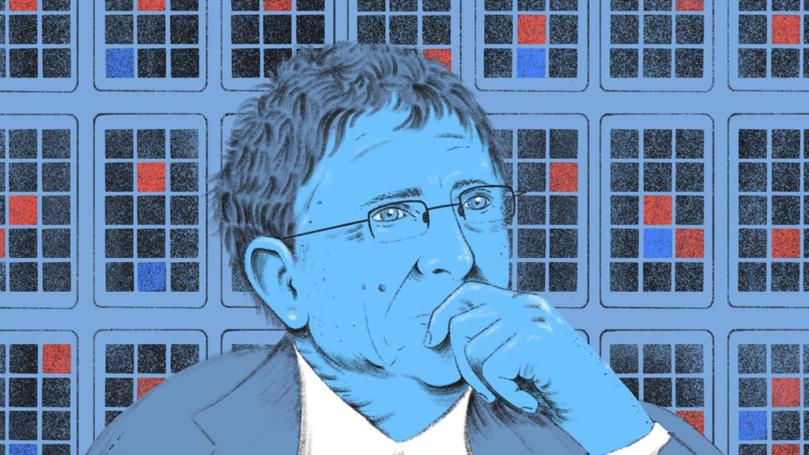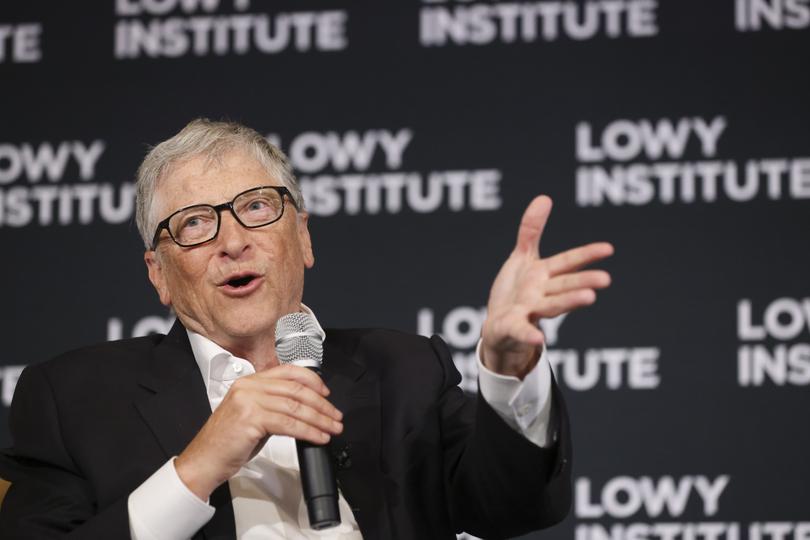CNBC: Bill Gates says today’s software is still ‘pretty dumb,’ but AI will ‘change how we live our lives’
‘You can use Microsoft Word and Google Docs to draft a business proposal, but they can’t help you send an email, share a selfie, analyse data, schedule a party, or buy movie tickets.’

From virtually sending a friend money to ordering food to your doorstep, computer and mobile applications allow us to accomplish many tasks faster and easier than we could in the past.
However, despite its rapid development over the past few years, Microsoft co-founder Bill Gates thinks today’s software is still “pretty dumb,” according to a November 9 post on his blog, GatesNotes.
“You can use Microsoft Word and Google Docs to draft a business proposal, but they can’t help you send an email, share a selfie, analyse data, schedule a party, or buy movie tickets,” the billionaire writes.
Sign up to The Nightly's newsletters.
Get the first look at the digital newspaper, curated daily stories and breaking headlines delivered to your inbox.
By continuing you agree to our Terms and Privacy Policy.Currently, we typically use apps to complete a singular task such as booking a flight or checking our bank account. However, Mr Gates predicts artificial intelligence will make using different apps unnecessary within the next five years.
Mr Gates envisions a future in which you would have an AI agent, which would be a type of software that is able to process and respond to natural language and accomplish a number of different tasks.
You would simply ask your AI agent to do something and it would be able to do things for you based on information you’ve shared with it about your work, personal life, interests and preferences.
“In the next few years, they will utterly change how we live our lives, online and off,” he says.
He uses planning a trip as an example. Ordinarily, this would involve booking your hotel, flights, restaurants and other activities on your own. But an AI agent would be able to use its knowledge of your preferences to book and purchase those things on your behalf.
“When asked, it will recommend things to do based on your interests and propensity for adventure, and it will book reservations at the types of restaurants you would enjoy,” he writes.

AI challenges ahead
However, there are a couple of challenges to overcome before we get to this AI-fuelled future. Here are a few he anticipates will crop up:
- There would need be a new kind of database so the AI agent can store, retrieve and build upon the information it learns about you without sacrificing your privacy.
- Companies would need to figure out whether people will have one AI agent that interacts with other agents or whether a person would create AI agents for carrying out specific tasks, such as tutoring or therapy.
- There would need to be a standardised way for AI agents to talk to each other.
However, despite these lingering questions, Mr Gates predicts that AI agents aren’t too far from becoming a reality and could transform how we interact with computers and each other.
AI now versus the future
Despite Gates’s predictions, you probably don’t have to worry about AI completely replacing humans any time soon.
While AI chatbots like ChatGPT are impressive, they’re lightyears away from achieving human-level intelligence, Humayun Sheikh, a founding investor in Google-owned AI startup DeepMind, told CNBC in May.
That’s because we don’t currently have the technology needed to create “artificial general intelligence” or AGI, which refers to an AI that would be able to complete most tasks as well as or better than a human, according to IBM.
“AGI doesn’t exist yet — there is a robust debate going on in the computing industry about how to create it, and whether it can even be created at all,” Mr Gates wrote in a March blog post.
For now, we have what’s called “narrow AI.” This is when an AI is trained to perform specific tasks very well, such as recommending movies or books you may like based on what you’ve watched or read in the past, per IBM.
But as technology continues to develop, the algorithms powering how AI systems learn will also continue to get better, Mr Gates wrote in March.
“We should keep in mind that we’re only at the beginning of what AI can accomplish,” he said. “Whatever limitations it has today will be gone before we know it.”
